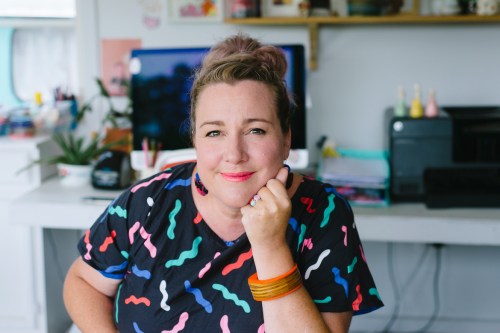The Most Googled Wellness Questions of the Year—Answered
Our experts answer the most Googled wellness questions of 2021, including how to care for your mental well-being.

Every second, there are 70,000 Google searches on everything from the practical (“How many ounces are in a cup?”) to the essential (“Where am I?”). This year, like all years, people also took to their favorite search engine to ask burning questions about health and well-being. Their queries included: “When can I get a COVID-19 booster?” and “How do I find my soulmate?” So today, we’re answering some of your most Googled wellness questions of 2021.
Below, we’ve rounded up the best intel from our experts when it comes to the top five wellness search terms and questions that people looked up this year. Get ready for positive affirmations, mammography information, and more random (but pertinent) information inquiring minds really wanted to know about in the year 2021.
Answers to the 6 most Googled wellness searches of 2021
1. Affirmations
Searches for affirmations peaked this year, according to Google. For the unfamiliar, Merriam-Webster defines affirmations as positive assertions you say to yourself, and they can be as simple as: “I am here.” Or, they can be something more complex that has meaning just for you.
For 2020, we asked mindfulness experts for their best calming affirmations, and this year, we found a few for better sleep, a few for banishing negative emotions (in the shower, no less), and a few more to use depending on your Zodiac sign. TL;DR: There are a lot of great things you can say to yourself—so say them.
2. Soul mate
My heart melted when I saw that so many people searched for “soul mate” online this year. (You guys!!!) Here at Well+Good, we’ve spent some time pondering whether there is one, single person you’re destined to be with—and experts overwhelmingly say, “nope.”
While you may be more compatible with some people than others, a true soul mate is someone you’re willing to grow with, someone who makes “meeting halfway” feel like a challenge worth taking on. “It does not mean that you have the exact same wants, wishes, and desires [as your partner], but rather that you engage in activities and conversations that are of interest to the other person because their preference matters to you,” psychologist Karla Ivankovich, PhD, previously told Well+Good. So keep that in mind as you navigate the world of online dating.
3. How to maintain mental health
Get ready because this one’s a biggie: Over the last two years, the social isolation necessary to end a pandemic has taken a serious toll on people’s mental health. BIPOC have shouldered most of this burden, and one positive side effect is that these communities, and large swaths of society in general, are reclaiming rest and self care in order to prioritize their mental health. Many folks have turned to therapy (including psychedelics-assisted treatments) to really give the organ upstairs (i.e. their brains) the love and care they deserve.
Learn all about the rise of online therapy in this episode of the Well+Good Podcast:
4. Women’s health
According to the Google report, people searched “women’s health” more this year than any other. And while this is a very broad category that covers a lot of topics, some of the biggest stories impacting women’s health that we’ve covered closely this year include what moms need during the pandemic—and the subsequent childcare shortage it’s created; racial and gender biases in healthcare and fertility treatments; the importance of pelvic floor health; and abortion access.
Learn about a few women who are fighting to for women’s health to take center stage:
5. Mammography
Mammography is the process of examining the human breast using low-energy X-rays, mammogram screenings can help detect breast cancer. Since 1989, they’ve helped save up to 600,000 lives.
According to the American Cancer Society, women between the ages of 45 to 54 should get a mammogram every year, while women over 55 should get one every two years. (Talk to your doctor about what timeline makes sense for you.) This is especially important to keep in mind because, during the pandemic, there’s been a 63 percent decrease in breast cancer screenings—a statistic that’s worrying to doctors. So if you’re 45 or older, take this as your sign that it’s time to go get your annual exam.
6. When can I get a COVID booster?
The time is now. The Food and Drug Administration (FDA) has approved the COVID-19 booster shot for everyone 16 years of age or older who’ve received a Pfizer-BioNTech or Moderna vaccine at least six months ago. You can book your booster appointment here.
Oh hi! You look like someone who loves free workouts, discounts for cutting-edge wellness brands, and exclusive Well+Good content. Sign up for Well+, our online community of wellness insiders, and unlock your rewards instantly.
Sign Up for Our Daily Newsletter
Get all the latest in wellness, trends, food, fitness, beauty, and more delivered right to your inbox.
Got it, you've been added to our email list.










